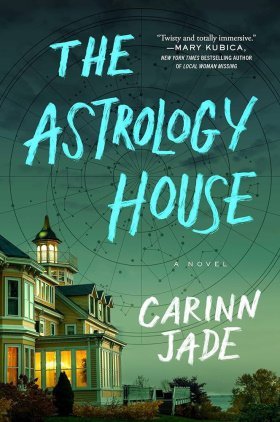I try to break down my mental block to envisioning life with Aimee. It wouldn’t be all that different from now. I would go to work every day, and Aimee would have more kids to play with. I could take the financial hit of divorce; my practice is flourishing. Aimee would have the support of my nanny too. We’d coordinate custody to arrange weekly date nights, and regular carefree weekends to go on adventures (for her), or stay in and binge trashy television (for me).
The details come together a little in my mind, and I start to feel happy, but the big picture worries me. Will the neighbors accept us or ostracize us? How will the kids react? Lurking deeper in my subconscious is the question I don’t dare ask even myself: Would Aimee actually choose me? It’s too scary to think about.
“I guess this means you’re ready to tell me what’s really going on with Beckett,” Aimee says.
“What?” I ask, confused.
“You said you wanted to talk, and I’ve been waiting for you to come back to it since the car ride out here.”
I take a beat and Aimee gives me space. We walk in silence, alternating between looking out at the vast ocean on the horizon and the beautiful, varied homes along the walk. After Rini’s reading, it almost feels like a relief to talk about the logistics of this.
“Have you ever thought something was wrong with him?” I ask.
“Wrong with Beckett?”
I’m messing this all up, as I knew I would. “Not wrong. That perhaps he might need some medical intervention or support,” I clarify.
“No, I’ve never thought that,” Aimee says.
If Aimee’s never noticed, then maybe this line of thinking is a mistake.
“I could see you holding him to a standard that’s too high for an eight-year-old. Is that what’s happening?” she adds.
I shake my head. “There are some patterns. Things I don’t see in Clara.”
“Clara is an old soul. She’s not a fair measurement.”
It’s tempting to defer to mommy expert Aimee, but no, I can’t ignore my suspicions on this. I’ve witnessed it with my own eyes and ears. “I might have him evaluated.”
Aimee shrugs. “Sure, why not ask some questions? Will you take him to his pediatrician or a child psychologist?”
“I don’t know. I don’t know if I can handle this, Aimee.”
My voice cracks unexpectedly. Aimee stops and turns to face me.
“We’ll get through it together,” she says, holding my shoulders.
She doesn’t say “as a couple,” but I hear “together” and my confidence creeps back. At work people expect me to have answers because I’m a doctor. But I don’t have to wear my doctor hat for my son. I’m a regular mom who has questions. That doesn’t mean I’m failing—not yet anyway.
“Are you okay?” a woman’s voice asks. “Are you okay? Can you talk?”
On the lawn of a small cottage, a woman is frantic as her companion doubles over in pain on the grass. I pull Aimee off our walk and toward the couple.
“What’s happening?” I ask.
“I don’t know. We were walking and all of a sudden he froze.”
The man claws at his throat.
“Do you have allergies?” I ask. “Did you eat something?”
He shakes his head no. I scan his body and notice the hives on his legs, arms and neck.
“Is he allergic to beestings?”
The woman shrugs. “It’s never come up.”
“I’m a doctor. I think you’re having an anaphylactic reaction.”
The man nods.
A few other people have come out of the house to check on the commotion. I direct them to lay their friend down flat and check for a stinger. Someone calls out that they found it; another runs inside for some tweezers.
“No, that will push more venom in,” I warn. “Scrape it with your fingernail or a key.”
I rummage in my purse and dig through to find my EpiPen. Beckett has a severe tree-nut allergy, and though he’s not with us on this trip, I no longer leave home without several medical-grade epinephrine injectors. It’s a doctor perk that comes in handy. Last summer, I saved a neighbor from an unknown shellfish allergy after eating shrimp at a kindergarten graduation party.
“I need clear access to his outer thigh.”
“His eyes rolled back in his head,” the woman explains.
“Farah, he’s fainted,” Aimee says.
“It’s okay. That’s why I had you put him down.”
I lunge toward the man with the injector in hand, but pause to sweep in a deep, calming breath.
“What are you doing? Don’t wait,” the woman shouts. “He’s dying.”

























